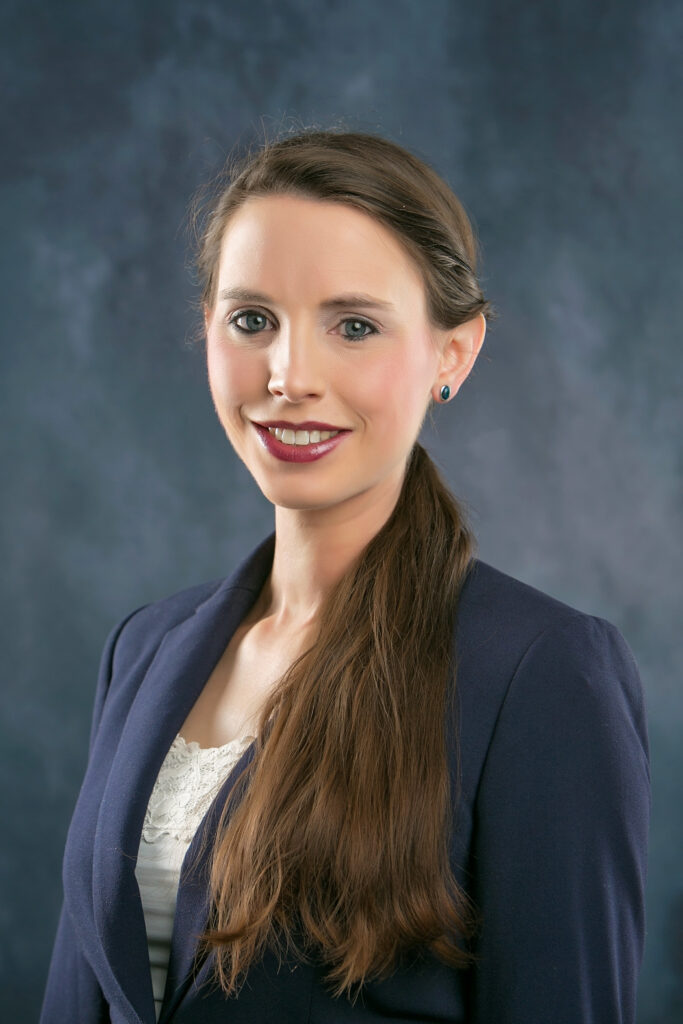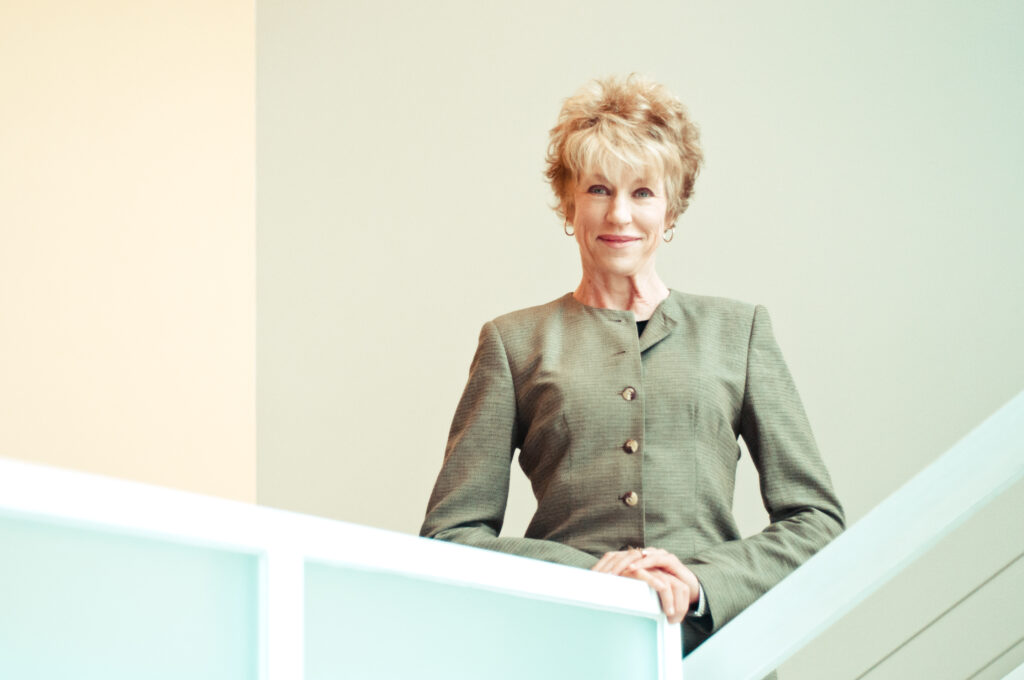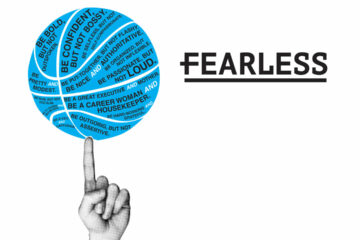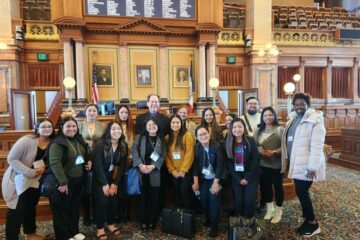Rachael Denhollander’s advocacy journey will bring her to Central Iowa
The first woman to publicly accuse former U.S. national team doctor Larry Nassar of sexual abuse is the Chrysalis Foundation’s 2023 ‘Inspired’ keynote speaker.

Almost six years later, she is still leading armies of survivors.
Rachael Denhollander, a lawyer, former gymnast, writer and homeschooling mom of four, was pivotal in putting former U.S. national team doctor Larry Nassar in prison. She and other women exposed a culture of silence and cruelty within some gymnastics communities that enabled Nassar to groom and sexually abuse young victims for decades.
Denhollander is the keynote speaker at the Chrysalis Foundation’s annual Inspired event, which will be held from 11:30 a.m. to 1 p.m. on Monday, Nov. 13, at the Sheraton West Des Moines Hotel. The Chrysalis Foundation is a nonprofit based in West Des Moines with the goal of ensuring that “all girls and women are safe, secure, educated and economically empowered.”
Denhollander’s lecture is titled “What Is a Girl Worth?” She published a memoir with the same title in 2019 and has written two children’s books with similar themes. Tickets to the event are available here.
Denhollander was the first Nassar survivor to go public, telling her story to the Indianapolis Star and giving the newspaper permission to use her full name and to publish video of her interview. In the interview, she described how Nassar abused her under the guise of performing legitimate medical procedures. Denhollander told the IndyStar that she didn’t come forward as a teenager because she knew, even then, that sexual abuse victims were treated poorly and rarely believed. She wasn’t ready to tell her story.
After the IndyStar’s coverage, other Nassar survivors felt comfortable coming forward and being identified in the media. They eventually became a self-named army of more than 500 survivors, some of them confronting Nassar face-to-face in Judge Rosemarie Aquilina’s courtroom in January 2018.

Terry Hernandez, above, executive director of the Chrysalis Foundation, said that, as a women’s group, the Chrysalis Foundation “has long tried to stand up for women who couldn’t speak for themselves.”
She followed news stories about Nassar’s abuse and watched “Athlete A,” a Netflix documentary about abuse in gymnastics that featured Denhollander, as well as gymnasts Maggie Nichols, Jamie Dantzscher, Jessica Howard, Jennifer Sey and others.
Hernandez said the Chrysalis Foundation staff started discussing Denhollander as a possible guest speaker whose message aligned well with their mission.
“She is one of the brave women who, following the #MeToo and some of the other more public initiatives, was well before her time in exemplifying the courage it takes to stand up to an abuser. And then learning more about her story, and the fact that she opened the floodgates that made it OK for girls and young women to report that sort of abuse, was such a symbol to us because we’ve always maintained that you need to believe the victim and never discount what they’re telling you, and that so rarely occurs in the public sector,” Hernandez said.
Iowa’s ties to elite women’s gymnastics
Iowa has been a hotbed for gymnastics success in recent years, and some Iowans have close ties to USA Gymnastics – as athletes, parents of athletes, coaches, judges, gym owners, choreographers and fans.
Shawn Johnson East, who grew up in West Des Moines, won four medals at the 2008 Olympics in Beijing. Gabrielle Douglas, who trained in West Des Moines for two-plus years, won two medals at the 2012 Olympics in London and one at the 2016 Olympics in Rio de Janeiro. There are at least five other Iowa girls and women who have been on the U.S. national team in the last decade – gymnasts who accept international assignments and compete for Team USA.
The U.S. classic, an elite qualifying meet to the U.S. national championships for girls and women, was held in Des Moines in 2009. Des Moines also hosted the national championships for USA Gymnastics’ elite rhythmic, acrobatic, and tumbling and trampoline (“T&T”) athletes in 2019 and again in 2022.
Denhollander’s watchdog work outside of gymnastics
Denhollander’s advocacy for abuse survivors goes far beyond the gymnastics world.
A devout Christian, she has become a nonyielding watchdog for sexual abuse within church communities, often tweeting on X, the social media website formerly known as Twitter. She has also written about mental health, including a recent essay in the New York Times about Simone Biles, unhealthy expectations and toxic cultures.
Denhollander’s background has been unifying in some ways, Hernandez said.
“Unfortunately now, the conservative voice is lost in the clamor of the crazies — in the MAGA and all of that — but the conservative voice is no less valid than what someone might consider a liberal voice. It is a truth-telling source of information, and her story is as true as anything else would be, so I think it’s really important, especially for those people who might say, ‘You know, this is another bleeding-heart liberal.’ The fact is that is not the case. This is a woman who is telling her truth and leading others to feel comfortable sharing their own stories that may be reflective of a little bit more moving toward the center, and that would be my hope,” Hernandez said.
Six years since the #MeToo movement
It has been six years since the #MeToo movement brought attention to the prevalence of sexual abuse and sexual assault.
Hernandez said her sense is that more attention is being paid to victims who are making reports, and that victims feel more comfortable reporting things that “aren’t right or that don’t feel right.” But she has big-picture concerns.
“I also see the societal climate having changed over the last six to eight years to where people are much more mean-spirited and rude, for lack of a better term, that feel entitled to criticize others or give opinion when there isn’t opinion needed, or ridicule someone when there isn’t that need,” she said.
Hernandez said her hope is that as a society, we are moving forward in recognizing abuse, reporting abuse and realizing just how prevalent it is.
But she doesn’t think there is less sexual abuse. “I think we’re just learning more about it. And/or, it’s being suppressed even more, and that’s my fear,” Hernandez said.
Understanding common forms of sexual violence
Shannon Knudsen, a sexual assault nurse examiner coordinator in Central Iowa, said she is often rebutting myths about the prevalence of sexual abuse. “A lot of times, especially in those rural areas, people believe, ‘Well, it doesn’t happen here. We know everybody in our community.’ Things like that,” she said. “So they don’t see a great amount of reports, but I know that they’re happening there. Those [victims] are driving hours to get services or they’re just not getting services at all because they don’t believe that they can.”
Sara Hulen is sexual assault forensic response coordinator in the Iowa attorney general’s office. Both her and Knudsen’s jobs involve making sure that medical professionals throughout the state are aware of training and other resources to help them be effective responders when patients come to them after being sexually assaulted.
Hulen said that she has been listening to Denhollander’s book and that the author “does a fabulous job of advocating for what you would call ‘normal’ sexual abuse.”
“The way the media portrays sexual abuse is that it’s a stranger jumping out of the bushes. And what she experienced in her life has been actually more of what most people do experience,” Hulen said.
Denhollander’s experience is consistent with what Hulen and Knudsen said they see most often in their work: people without obvious physical injuries, without much independent evidence of what happened to them.
“Do we see those ones that society has in their head, that ‘Law & Order’ does a great job of portraying? Sure, but that’s not the majority,” Knudsen said.
Perpetrators are often somebody the victim trusted, and it often takes time for a victim to process what happened, and then more time to be ready to talk about it.
Hulen noted that Denhollander’s experiences also illustrate the common reality of how the grooming of victims operates. Denhollander’s mother was often in a room with her when Nassar abused her, blocking her mother’s view with his body. Nassar was often personable. “The general public who have not experienced this, those are the ones saying, ‘Oh, he would never do that, he’s so nice!’” Hulen said. “And that’s part of that grooming, and that’s part of grooming not just the victim, that’s grooming the family, it’s grooming the community. Grooming goes so much deeper than just the individual that’s been harmed.”
Nassar being held to account many years after his crimes began helps to illustrate another valuable point about the varied ways in which victims come to grips with their experiences and seek healing, the advocates said.
“I think one of the biggest things is recognizing that everyone’s timeline is different, when they’re ready to have those conversations,” Knudsen said. Victims might be told, unhelpfully, about another girl or woman’s story – “‘She told, she was very vocal. So if this really happened, you should too.’
“That’s not how it works. Everyone’s journey is going to be different.”


